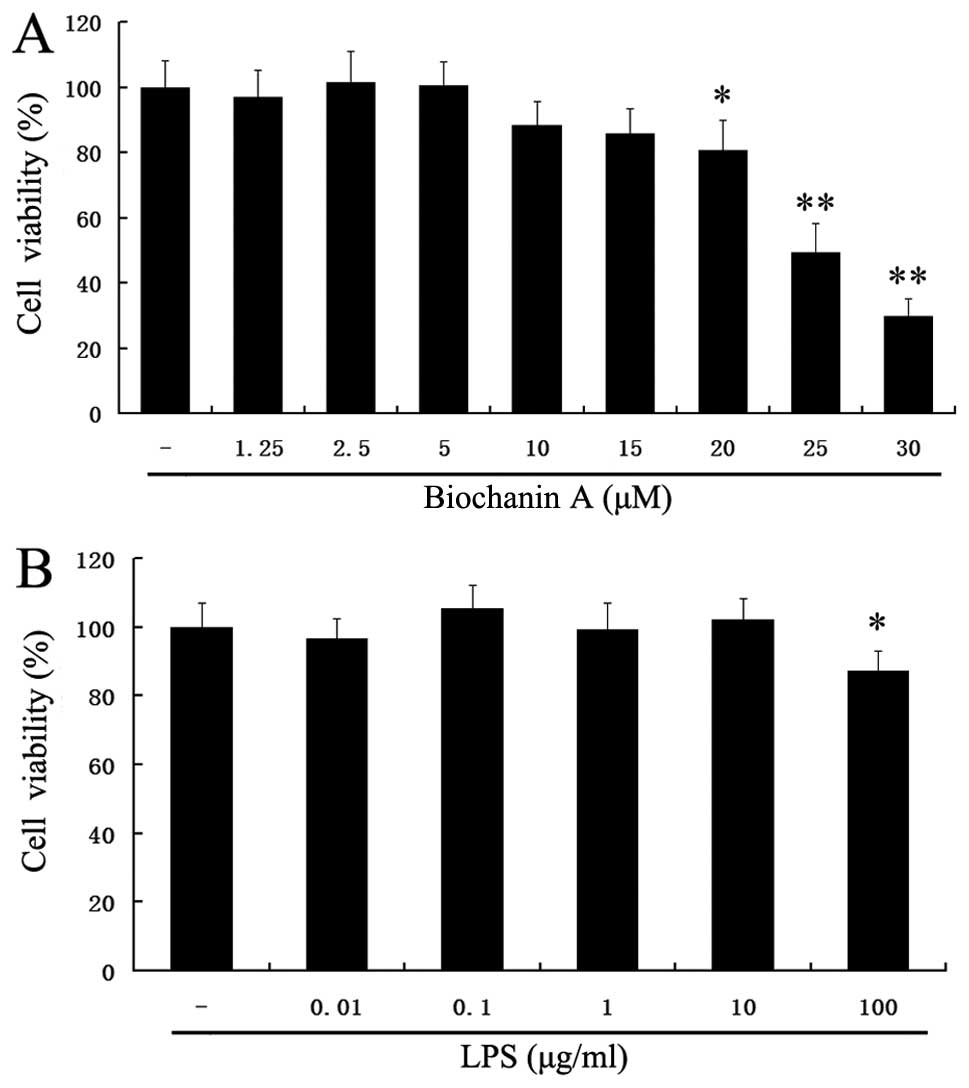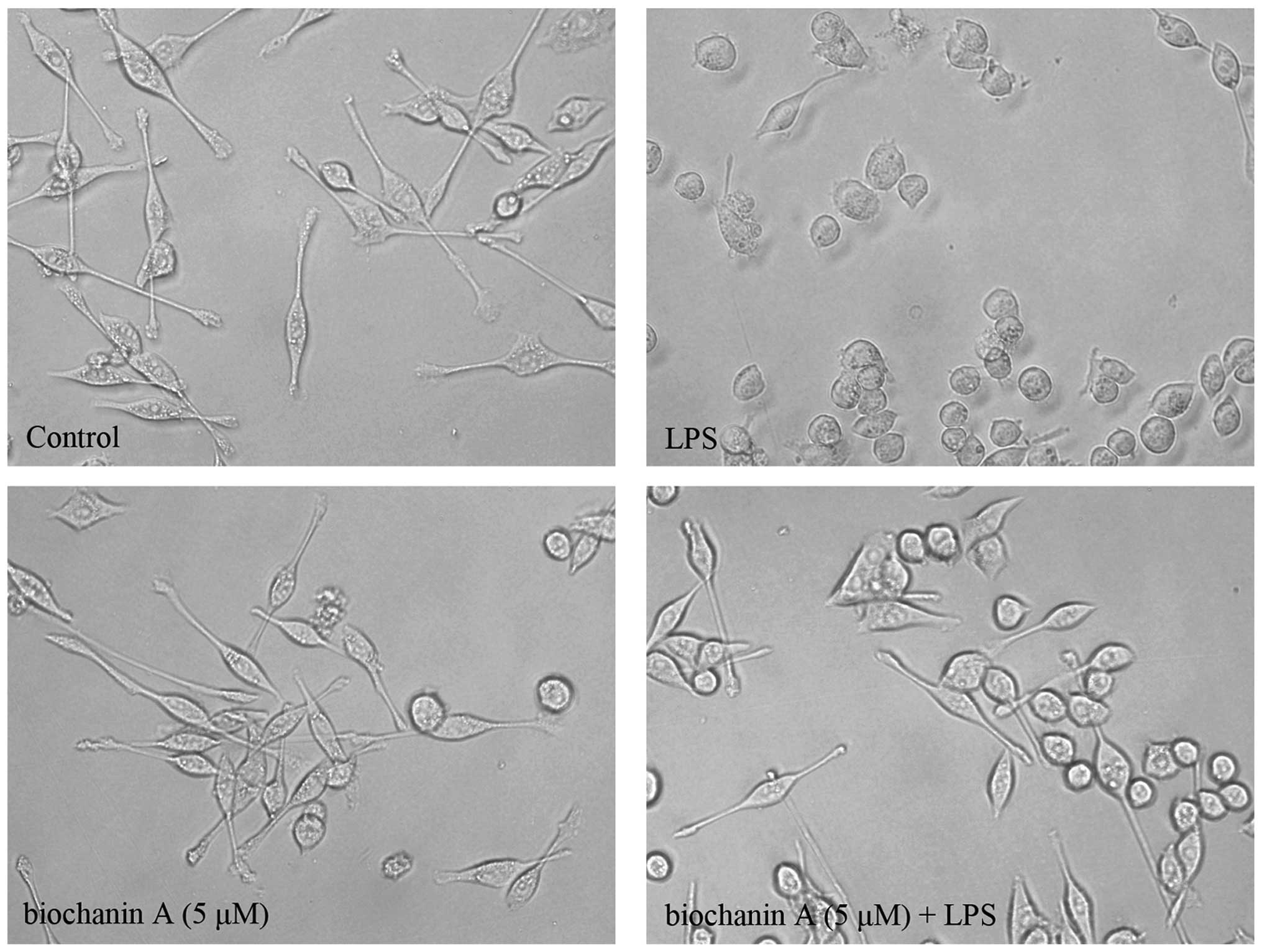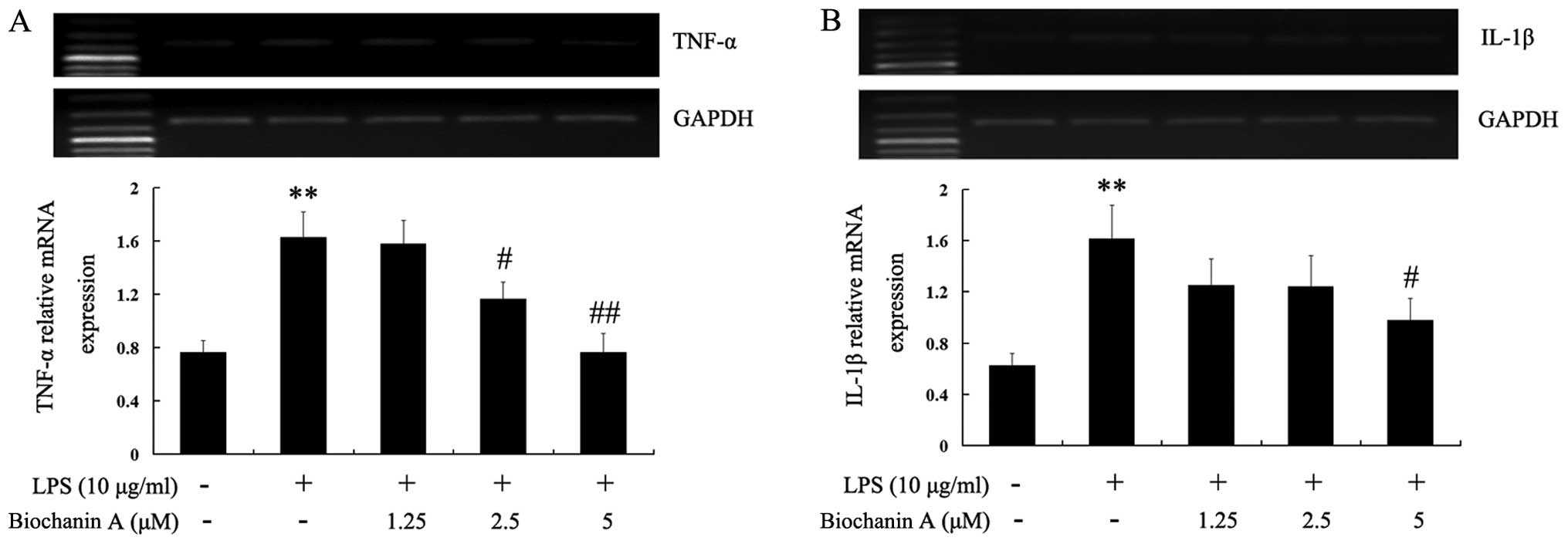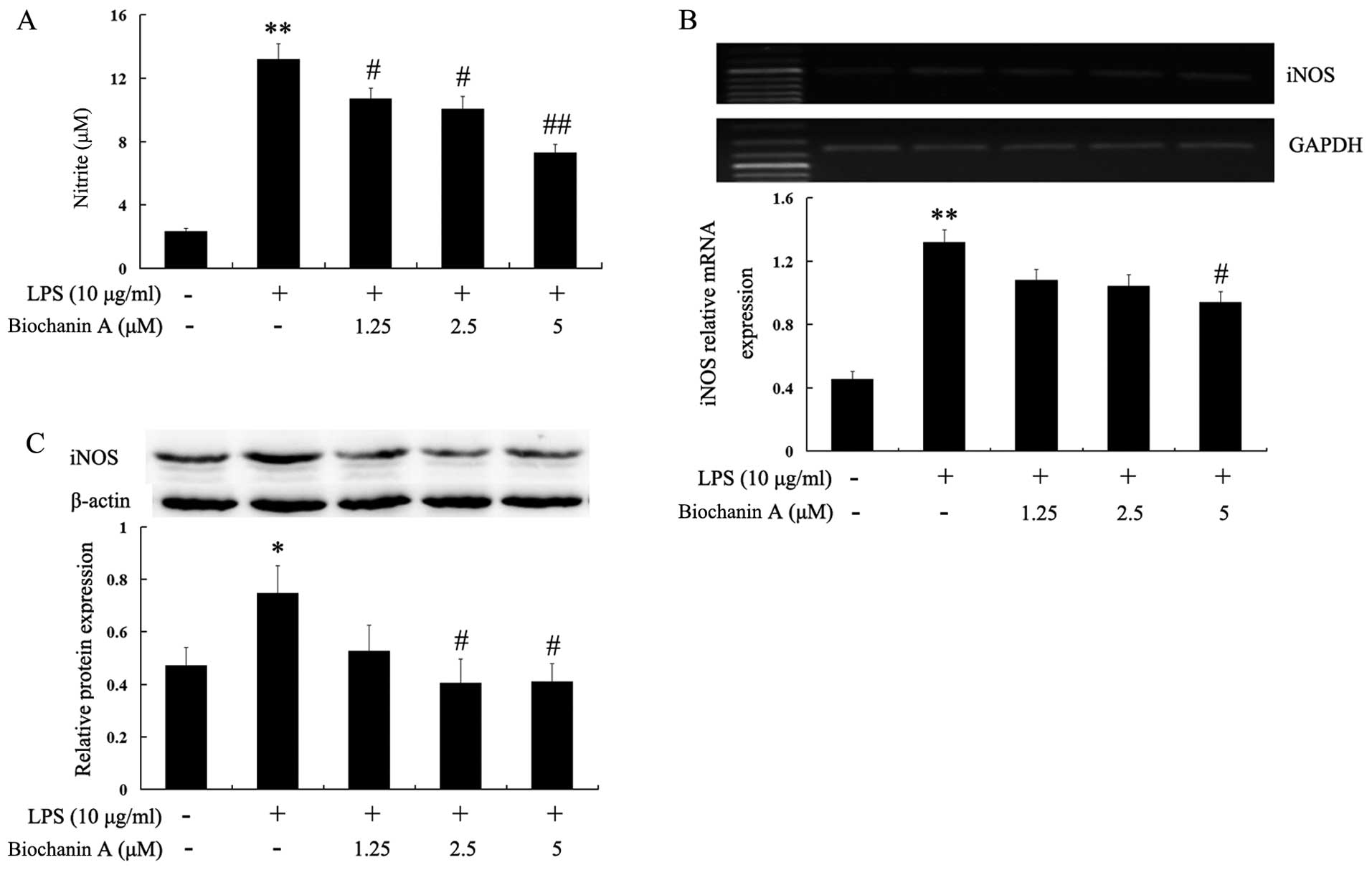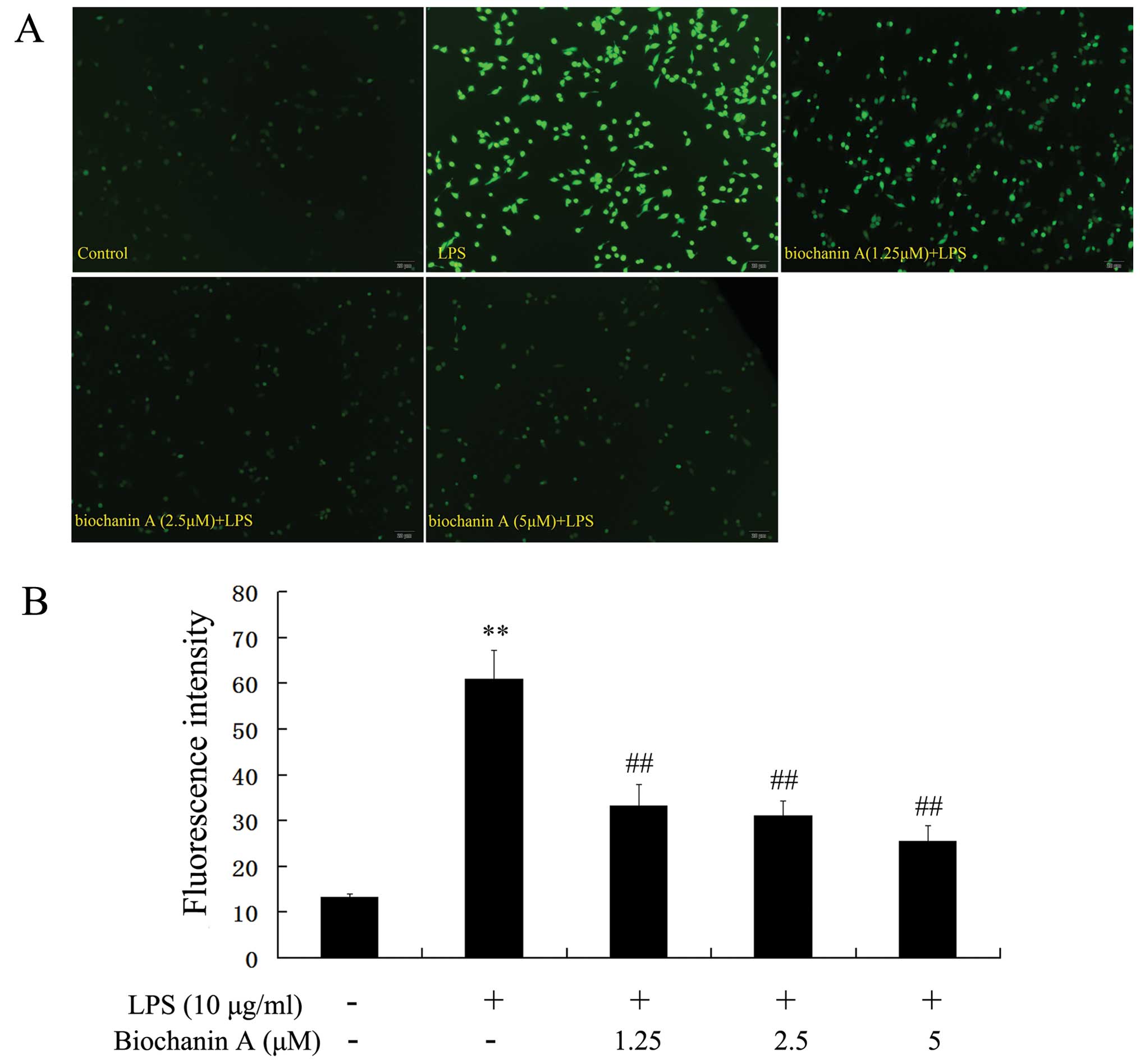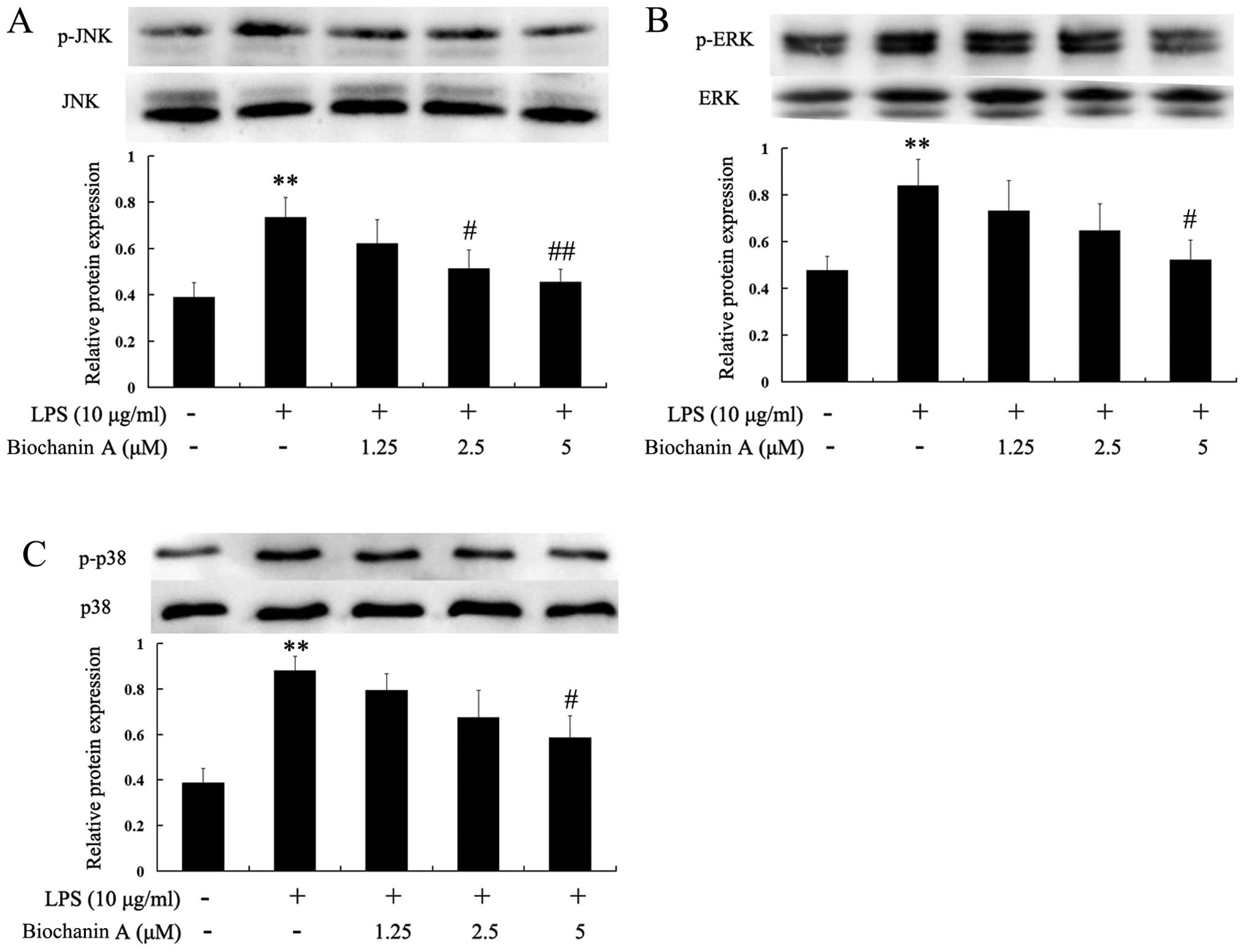|
1
|
Liu B and Hong JS: Role of microglia in
inflammation-mediated neurodegenerative diseases: mechanisms and
strategies for therapeutic intervention. J Pharmacol Exp Ther.
304:1–7. 2003. View Article : Google Scholar
|
|
2
|
McGeer PL, Itagaki S, Boyes BE and McGeer
EG: Reactive microglia are positive for HLA-DR in the substantia
nigra of Parkinson’s and Alzheimer’s disease brains. Neurology.
38:1285–1291. 1988. View Article : Google Scholar : PubMed/NCBI
|
|
3
|
Kreutzberg GW: Microglia: a sensor for
pathological events in the CNS. Trends Neurosci. 19:312–318. 1996.
View Article : Google Scholar : PubMed/NCBI
|
|
4
|
Gao HM, Hong JS, Zhang W and Liu B:
Distinct role for microglia in rotenone-induced degeneration of
dopaminergic neurons. J Neurosci. 22:782–790. 2002.PubMed/NCBI
|
|
5
|
Gayle DA, Ling Z, Tong C, Landers T,
Lipton JW and Carvey PM: Lipopolysaccharide (LPS)-induced dopamine
cell loss in culture: roles of tumor necrosis factor-alpha,
interleukin-1beta, and nitric oxide. Brain Res Dev Brain Res.
133:27–35. 2002. View Article : Google Scholar : PubMed/NCBI
|
|
6
|
Kim WG, Mohney RP, Wilson B, Jeohn GH, Liu
B and Hong JS: Regional difference in susceptibility to
lipopolysaccharide-induced neurotoxicity in the rat brain: role of
microglia. J Neurosci. 20:6309–6316. 2000.PubMed/NCBI
|
|
7
|
Liu B, Du L and Hong JS: Naloxone protects
rat dopaminergic neurons against inflammatory damage through
inhibition of microglia activation and superoxide generation. J
Pharmacol Exp Ther. 293:607–617. 2000.PubMed/NCBI
|
|
8
|
Liu B, Gao HM, Wang JY, Jeohn GH, Cooper
CL and Hon JS: Role of nitric oxide in inflammation-mediated
neurodegeneration. Ann NY Acad Sci. 962:318–331. 2002. View Article : Google Scholar : PubMed/NCBI
|
|
9
|
Jung WK, Ahn YW, Lee SH, Choi YH, Kim SK,
Yea SS, Choi I, Park SG, Seo SK, Lee SW and Choi IW: Ecklonia cava
ethanolic extracts inhibit lipopolysaccharide-induced
cyclooxygenase-2 and inducible nitric oxide synthase expression in
BV2 microglia via the MAP kinase and NF-kappaB pathways. Food Chem
Toxicol. 47:410–417. 2009. View Article : Google Scholar
|
|
10
|
Lei M, Wang JG, Xiao DM, Fan M, Wang DP,
Xiong JY, Chen Y, Ding Y and Liu SL: Resveratrol inhibits
interleukin 1β-mediated inducible nitric oxide synthase expression
in articular chondrocytes by activating SIRT1 and thereby
suppressing nuclear factor-κB activity. Eur J Pharmacol. 674:73–79.
2012. View Article : Google Scholar
|
|
11
|
Chen HQ, Jin ZY and Li GH: Biochanin A
protects dopaminergic neurons against lipopolysaccharide-induced
damage through inhibition of microglia activation and
proinflammatory factors generation. Neurosci Lett. 417:112–117.
2007. View Article : Google Scholar : PubMed/NCBI
|
|
12
|
Puthli A, Tiwari R and Mishra KP:
Biochanin A enhances the radiotoxicity in colon tumor cells in
vitro. J Environ Pathol Toxicol Oncol. 32:189–203. 2013. View Article : Google Scholar : PubMed/NCBI
|
|
13
|
Su SJ, Yeh YT and Shyu HW: The preventive
effect of biochanin a on bone loss in ovariectomized rats:
involvement in regulation of growth and activity of osteoblasts and
osteoclasts. Evid Based Complement Alternat Med.
2013:5948572013.PubMed/NCBI
|
|
14
|
Green LC, Wagner DA, Glogowski J, Skipper
PL, Wishnok JS and Tannenbaum SR: Analysis of nitrate, nitrite, and
[15N]nitrate in biological fluids. Anal Biochem. 126:131–138. 1982.
View Article : Google Scholar : PubMed/NCBI
|
|
15
|
Bruce-Keller AJ, Keeling JL, Keller JN,
Huang FF, Camondola S and Mattson MP: Antiinflammatory effects of
estrogen on microglial activation. Endocrinology. 141:3646–3656.
2000.PubMed/NCBI
|
|
16
|
Boje KM: Nitric oxide neurotoxicity in
neurodegenerative diseases. Front Biosci. 9:763–776. 2004.
View Article : Google Scholar : PubMed/NCBI
|
|
17
|
Han IO, Kim KW, Ryu JH and Kim WK: p38
mitogen-activated protein kinase mediates lipopolysaccharide, not
interferon-gamma, -induced inducible nitric oxide synthase
expression in mouse BV2 microglial cells. Neurosci Lett. 325:9–12.
2002. View Article : Google Scholar : PubMed/NCBI
|
|
18
|
Kim M, Li YX, Dewapriya P, Ryu B and Kim
SK: Floridoside suppresses pro-inflammatory responses by blocking
MAPK signaling in activated microglia. BMB Rep. 46:398–403. 2013.
View Article : Google Scholar : PubMed/NCBI
|
|
19
|
Le W, Rowe D, Xie W, Ortiz I, He Y and
Appel SH: Microglial activation and dopaminergic cell injury: an in
vitro model relevant to Parkinson’s disease. J Neurosci.
21:8447–8455. 2001.PubMed/NCBI
|
|
20
|
Minghetti L and Levi G: Microglia as
effector cells in brain damage and repair: focus on prostanoids and
nitric oxide. Prog Neurobiol. 54:99–125. 1998. View Article : Google Scholar : PubMed/NCBI
|
|
21
|
Sawada M, Kondo N, Suzumura A and
Marunouchi T: Production of tumor necrosis factor-alpha by
microglia and astrocytes in culture. Brain Res. 491:394–397. 1989.
View Article : Google Scholar : PubMed/NCBI
|
|
22
|
Akassoglou K, Bauer J, Kassiotis G, et al:
Oligodendrocyte apoptosis and primary demyelination induced by
local TNF/p55TNF receptor signaling in the central nervous system
of transgenic mice: models for multiple sclerosis with primary
oligodendrogliopathy. Am J Pathol. 153:801–813. 1998. View Article : Google Scholar : PubMed/NCBI
|
|
23
|
Botchkina GI, Meistrell ME III, Botchkina
IL and Tracey KJ: Expression of TNF and TNF receptors (p55 and p75)
in the rat brain after focal cerebral ischemia. Mol Med. 3:765–781.
1997.
|
|
24
|
Meda L, Cassatella MA, Szendrei GI, et al:
Activation of microglial cells by beta-amyloid protein and
interferon-gamma. Nature. 374:647–650. 1995. View Article : Google Scholar : PubMed/NCBI
|
|
25
|
Sriram K, Matheson JM, Benkovic SA, Miller
DB, Luster MI and O’Callaghan JP: Mice deficient in TNF receptors
are protected against dopaminergic neurotoxicity: implications for
Parkinson’s disease. FASEB J. 16:1474–1476. 2002.PubMed/NCBI
|
|
26
|
Rothwell N, Allan S and Toulmond S: The
role of interleukin 1 in acute neurodegeneration and stroke:
pathophysiological and therapeutic implications. J Clin Invest.
100:2648–2652. 1997. View Article : Google Scholar
|
|
27
|
Chao CC, Hu S, Molitor TW, Shaskan EG and
Peterson PK: Activated microglia mediate neuronal cell injury via a
nitric oxide mechanism. J Immunol. 149:2736–2741. 1992.PubMed/NCBI
|
|
28
|
Jeohn GH, Kim WG and Hong JS: Time
dependency of the action of nitric oxide in
lipopolysaccharide-interferon-gamma-induced neuronal cell death in
murine primary neuron-glia co-cultures. Brain Res. 880:173–177.
2000. View Article : Google Scholar : PubMed/NCBI
|
|
29
|
Iravani MM, Kashefi K, Mander P, Rose S
and Jenner P: Involvement of inducible nitric oxide synthase in
inflammation-induced dopaminergic neurodegeneration. Neuroscience.
110:49–58. 2002. View Article : Google Scholar : PubMed/NCBI
|
|
30
|
Li FQ, Wang T, Pei Z, Liu B and Hong JS:
Inhibition of microglial activation by the herbal flavonoid
baicalein attenuates inflammation-mediated degeneration of
dopaminergic neurons. J Neural Transm. 112:331–347. 2005.
View Article : Google Scholar
|
|
31
|
Dawson VL and Dawson TM: Nitric oxide in
neuronal degeneration. Proc Soc Exp Biol Med. 211:33–40. 1996.
View Article : Google Scholar : PubMed/NCBI
|
|
32
|
Qin L, Liu Y, Wang T, et al: NADPH oxidase
mediates lipopolysaccharide-induced neurotoxicity and
proinflammatory gene expression in activated microglia. J Biol
Chem. 279:1415–1421. 2004. View Article : Google Scholar
|
|
33
|
Wang T, Qin L, Liu B, et al: Role of
reactive oxygen species in LPS-induced production of prostaglandin
E2 in microglia. J Neurochem. 88:939–947. 2004. View Article : Google Scholar : PubMed/NCBI
|
|
34
|
Farber JL: Mechanisms of cell injury by
activated oxygen species. Environ Health Perspect. 102(Suppl 10):
S17–S24. 1994. View Article : Google Scholar
|
|
35
|
Estevez AG and Jordan J: Nitric oxide and
superoxide, a deadly cocktail. Ann NY Acad Sci. 962:207–211. 2002.
View Article : Google Scholar : PubMed/NCBI
|
|
36
|
Xie Z, Wei M, Morgan TE, et al:
Peroxynitrite mediates neurotoxicity of amyloid beta-peptide1–42-
and lipopolysaccharide-activated microglia. J Neurosci.
22:3484–3492. 2002.PubMed/NCBI
|
|
37
|
Kim EK and Choi EJ: Pathological roles of
MAPK signaling pathways in human diseases. Biochim Biophys Acta.
1802:396–405. 2010. View Article : Google Scholar : PubMed/NCBI
|
|
38
|
Bhat NR, Zhang P, Lee JC and Hogan EL:
Extracellular signal-regulated kinase and p38 subgroups of
mitogen-activated protein kinases regulate inducible nitric oxide
synthase and tumor necrosis factor-alpha gene expression in
endotoxin-stimulated primary glial cultures. J Neurosci.
18:1633–1641. 1998.PubMed/NCBI
|
|
39
|
Choi Y, Lee MK, Lim SY, Sung SH and Kim
YC: Inhibition of inducible NO synthase, cyclooxygenase-2 and
interleukin-1beta by torilin is mediated by mitogen-activated
protein kinases in microglial BV2 cells. Br J Pharmacol.
156:933–940. 2009. View Article : Google Scholar : PubMed/NCBI
|
|
40
|
Johnson GL and Lapadat R:
Mitogen-activated protein kinase pathways mediated by ERK, JNK, and
p38 protein kinases. Science. 298:1911–1912. 2002. View Article : Google Scholar : PubMed/NCBI
|
|
41
|
Park JS, Woo MS, Kim DH, et al:
Anti-inflammatory mechanisms of isoflavone metabolites in
lipopolysaccharide-stimulated microglial cells. J Pharmacol Exp
Ther. 320:1237–1245. 2007. View Article : Google Scholar
|
|
42
|
Song Y, Qu R, Zhu S, Zhang R and Ma S:
Rhynchophylline attenuates LPS-induced pro-inflammatory responses
through downregulation of MAPK/NF-kappaB signaling pathways in
primary microglia. Phytother Res. 26:1528–1533. 2012.PubMed/NCBI
|















